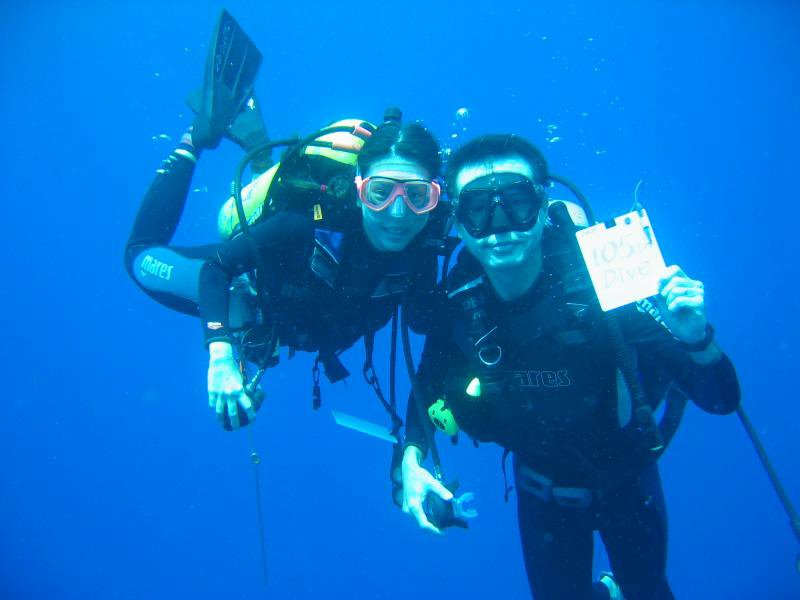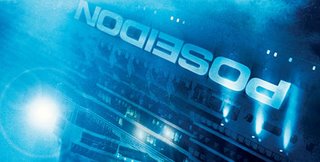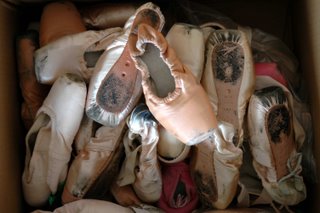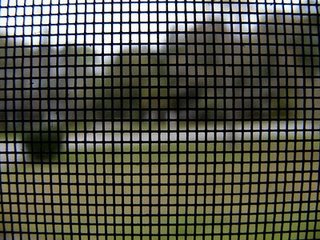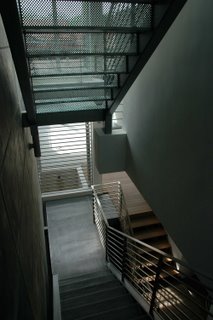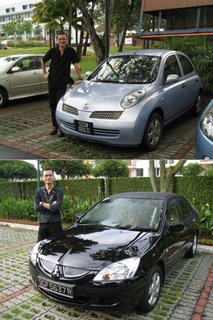 What's the premise?
What's the premise?I went to watch The Da Vinci Code last Saturday without having read the book and found it surprisingly enjoyable. It’s kind of like Nicholas Cage’s National Treasure combined with a theological lecture. It should be classed as fantasy, an escapism where one can be whisked away for a while to that ‘what if’ land. (Lini knows I have stacks of comics stored in my wardrobe.) For a while, I entertained the John Lennon thought that there was no accountability, no heaven, no hell, and no hope. And I actually wanted the movie to make a better case for itself in this respect. Unfortunately, it was let down by what I think is sloppy authorship. In no order of importance, here’s a list of puzzles I couldn’t make out:
Why is Sophie the “last descendent” of Jesus when she’s obviously healthy and fertile, in all her pre-menopause glory? Why, even Sophie’s grandma is alive, so wouldn’t her DNA do as well as hers?
If we can proof that Sophie’s DNA is the same as the DNA of the woman in the sarcophagus, how do we proof that the woman in the sarcophagus in Paris is Mary Magdalene from the Middle East?
If it can be proven that Sophie is the direct descendent of Mary Magdalene, how is this the proof that she is Jesus’ descendent as well? Ah, the movie says that the link is through the Leonardo painting and some “Gospel of Philip” and “Gospel of Mary Magdalene”. Well, the painting is real enough but it was painted by someone who has never been to the Good Land 1,400 years after the events it depict. The gospels; no such thing, even if the Nicene Council is real enough. There was a “Gospel of Thomas” that I read about, but this was rejected by the Council; it was nowhere as contemporary as the canonical Gospels. My point is; it’s a far-fetched, tenuous connection. Obviously, the bolder thing the author could have done is to make the remains in the sarcophagus that of Jesus’. Now that would prove that Jesus was a man and Christianity a hoax. By not inventing that, Dan Brown is giving the religion a back-handed endorsement. The tomb is empty. The thought that Jesus’ body could still be on earth is so outrageous to Dan Brown that he couldn’t write that, even if it would suit the plot better.
Why keep the secret for 2000 years and then the fuss about exposing it at the dawn of the second millennia?
My favourite part is how the new architecture of the Louvre is shown to be designed to house the relocated sarcophagus of Mary Magdelene. Since the new Louvre is designed by I.M.Pei, I'm now fully convinced of the close ties between Opus Dei and the mainland Chinese.
And the premise of Teabing that if the lie about Jesus was exposed, then the world will be freed of bloodshed, cured of discrimination against women and witches, dogma, etc, is patently ludicrous, no? I mean, really? Teabing doesn’t think there are other religions that are equally or more suppressive and violent? And that societies that had enforced atheism are happier places? Think the atrocities by Communist Russia, or Cambodia under Pol Pot (“Brother Number 1” and “Year Zero”). Men will look for whatever banner to kill and war against the weak. It’s one of the constant cycle of history, the subject of Teabing’s study.
But I guess the real question is whether a lie should be exposed or left as it is, if a faith based on a lie can be violent and cruel. I suppose that is the deeper premise. Maybe I’ve missed something in not having read the book. But Lini read the book, and she was close to sleeping for parts of the movie. They say the movie is quite a faithful adaptation, so there’s no compulsion to read it now. I’m resuming my reading of “The Closing of Western Mind” by Charles Freeman instead. Its arguments are more cogent and persuasive, and hence, far more insidious than The Da Vinci Code. But on the deeper question, of whether if one knew the "truth", should one go up to a people and tell them what they are worshipping is false, and whether that is wise or foolhardy, well… I’m keeping my answer to myself.
Chup
